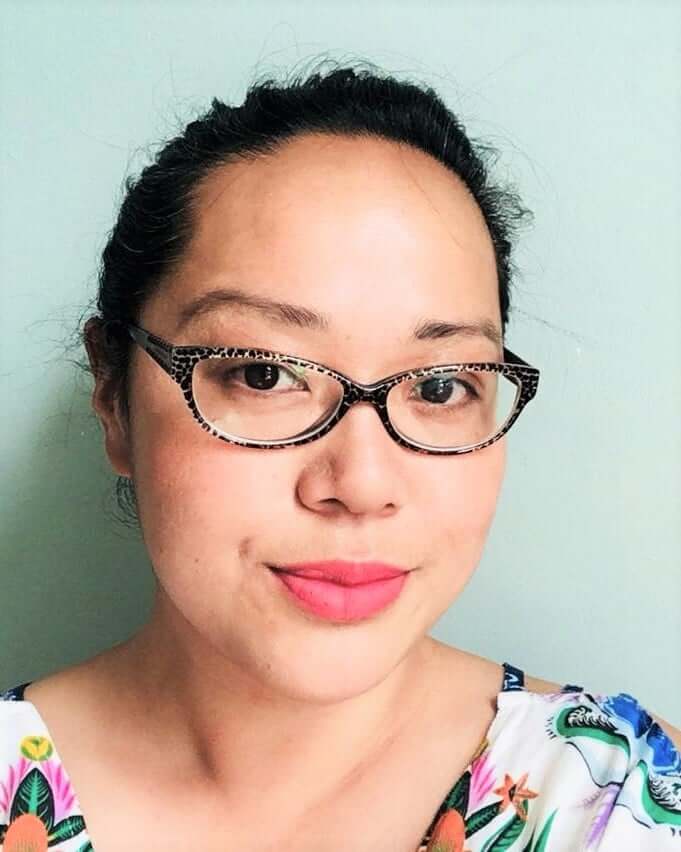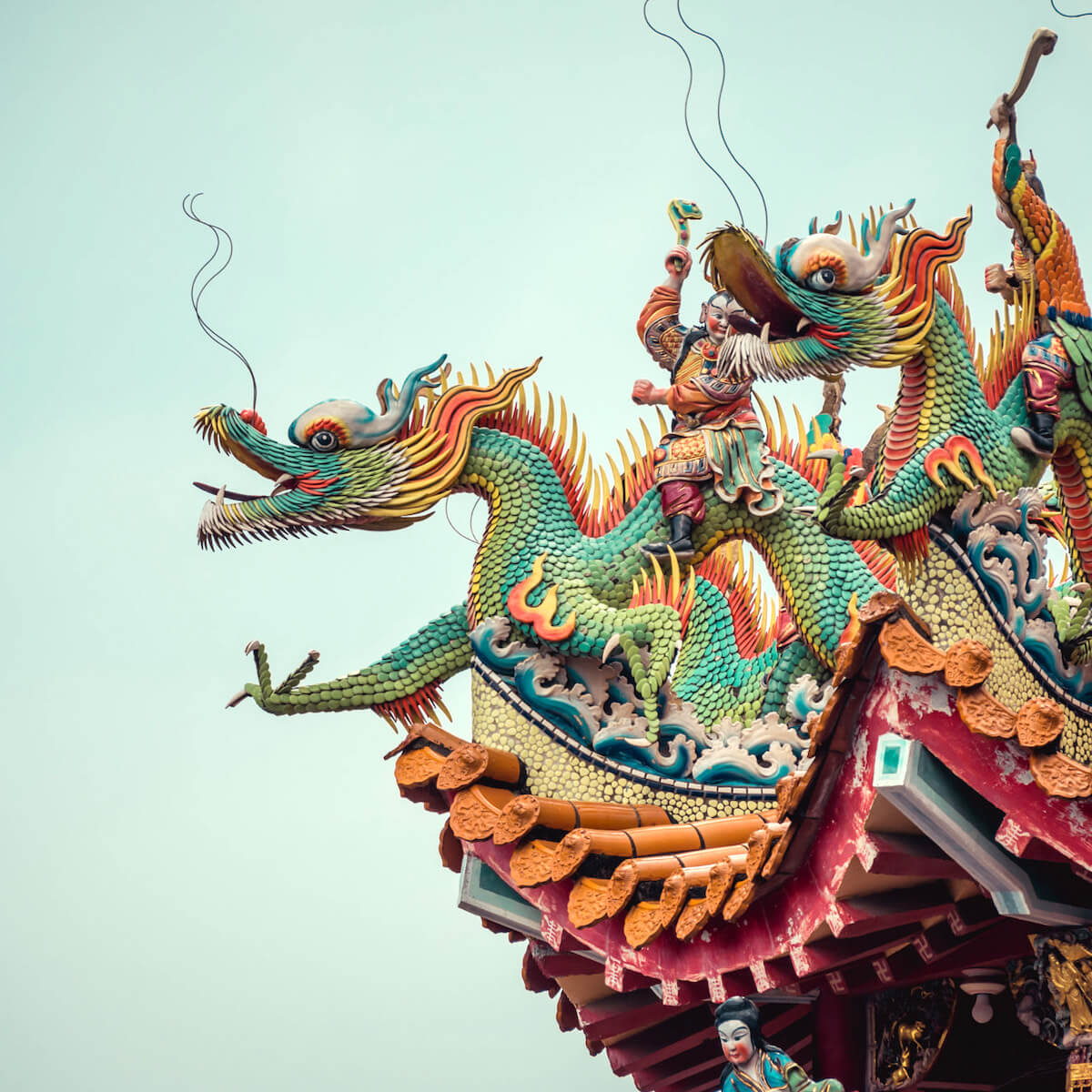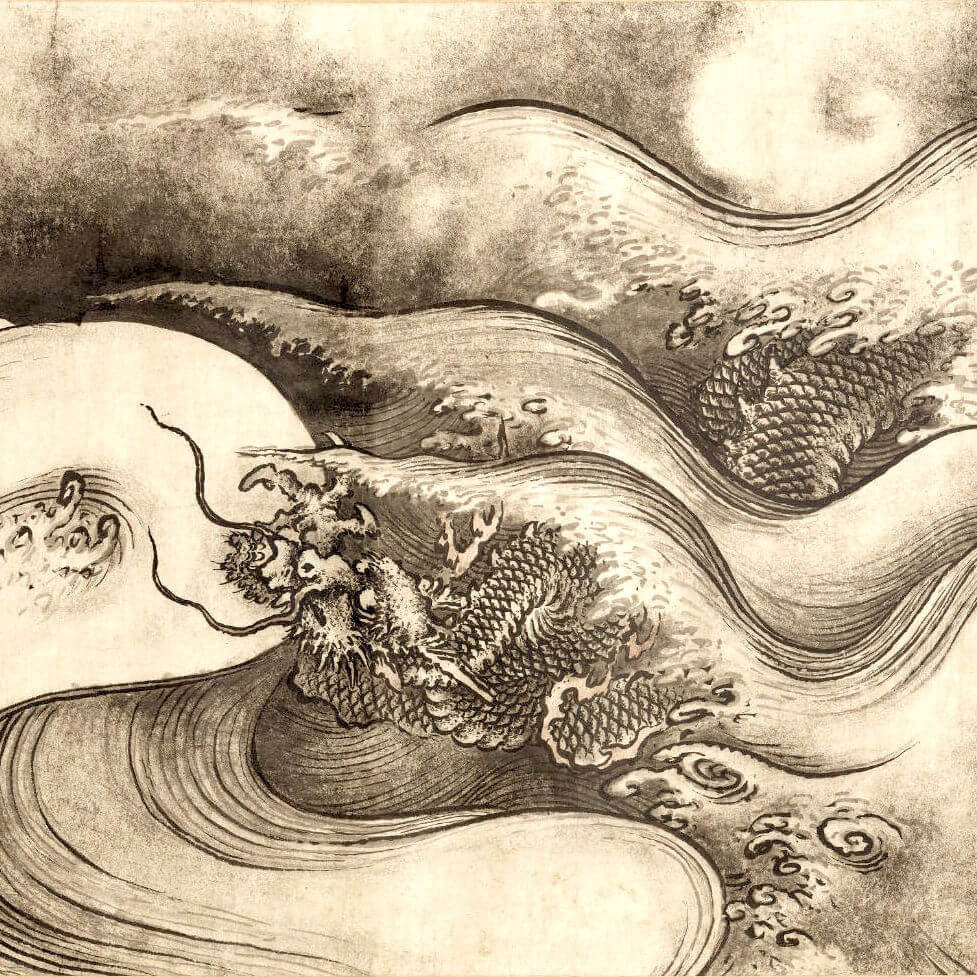In this post, we’re featuring the fabulous Maisie Chan. Read our wide-ranging interview about writing, representation, the ongoing harms of orientalism, and the dedication it takes to be a damn good storyteller.
Hello, Maisie. It’s great to talk to you. We’re particularly excited because you are the first writer in our Inspirations series, where we feature writers committed to using their words to make the world a better place.
This is a really exciting time to be talking to you because you’ve got not one, but two books coming out in the coming few months: Danny Chung Does Not Do Maths (Piccadilly Press), published in the USA as Danny Chung Sums it Up (Amulet Books), and Tiger Warrior: Attack of the Dragon King (Orchard Books).
So, first off, can you tell us a bit about your background, and how you first got into writing?
I was in my late twenties when I knew I wanted to be a writer. I thought about becoming a teacher multiple times as I liked working with children, but something always made me come back to being an author. I was a trust fundraiser for a few years, where I honed my writing skills, though asking for money wasn’t my strength!
I talked about “being a writer” before I put pen to paper. I had a group of friends telling me to go for it. I applied to a Birmingham Libraries mentoring scheme and got a place. My short story was published in an anthology, and I was the first British Chinese writer to appear at the Birmingham Book Festival (as it was known back then).
Soon after, I gained a place on the National Academy of Writing Course at Birmingham City University with Nicola Monaghan, Jackie Gay and Richard Beard as my tutors. I learned a lot about the industry and tried different forms of writing, however, I didn’t know then I was going to be a children’s author. I did have it in the back of my mind that I ALSO wanted to write for children, but I didn’t look into it much. I remember writing a terrible yoga-inspired picture book called Bendy Wendy. I didn’t realise how much more you need to do than just sit down and write a picture book. You have to learn the craft and write some not-so-good-stuff before you write the stories that get published.
Actually, Will (from Wind&Bones) was the first person to publish something that I wrote. It was the Last Hao Gao – a 300 micro-story for Birmingham Words online. It was such a big deal to me that someone out there liked something I wrote. Many thanks for that huge boost!

As a British Chinese writer, you’ve talked about how growing up, very few books you had access to featured Chinese people, or reflected your own experience. What effect did this have on you as a reader, a future writer, and a human being?
I grew up loving detective fiction, such as Agatha Christie. At secondary school and at University I sought out more books by authors of colour and read a lot of African American books. When I lived in the U.S for a year I wanted to find more books that were by Asian American authors. It’s been a progression from reading no books with British Chinese content to being a creator of those stories.
My BA and MPhil were focussed on Asian American literature and film and I wrote about The Joy Luck Club by Amy Tan and the film version by Wayne Wang. I remember reading The Joy Luck Club for the first time and crying because it was an East Asian diaspora woman in charge of the narrative.
The lack of role models and representation has fuelled my desire to see more literature and characters on screen who are BESEA (British East and Southeast Asian). I thought about becoming an academic but changed my mind. Instead, I wanted to focus on creating literature to fill the massive void that I felt there was. I wanted to write about people like me and people I knew who were second-generation British Chinese. I felt that my best chance of changing things was to write and to help others to do the same.
Being a published author is not easy, you have to learn the craft, and you have to navigate an industry where you are in a minority. I had some personal setbacks and took time off to have children, but I knew it was my calling to do this work as a creator. In the end, I want to be the one who is telling the story. If we can tell our own stories, then we can at least recognise some of ourselves in literature and film.
Danny Chung explores the experience of growing up while traversing cultures and struggling with cultural stereotypes. How much of you is there in your character of Danny Chung?
I didn’t think there was much of me in Danny when I was writing him. As he’s quite cheeky and does things behind his parents’ backs, which I never did. I grew up with white parents and looked Chinese, so there was that aspect of always being between two cultures. I didn’t think I was Danny, however, looking back, I was into drawing, and I did want to be more like the ‘cool’ girls groups in school. I think that wanting to belong is a trope for all children, not just Danny or children from diverse backgrounds. Children want to do what they want to do, but parents will have differing ideas sometimes – it’s universal.
I did base Nai Nai on a few older women in my life. My friend’s grandmother who arrived from China, my own Chinese grandmother who I met later in my life, my mum Jean, and my mother-in-law who I like to say ‘over loves’ my children. She overfeeds them to show them her love because they don’t share a language.
I wanted to write a fun story which featured family and friends. I wasn’t setting out to mine my life or write an autobiographical novel which I feel is a trend in #ownvoices now. Publishers want writers to have those experiences for authenticity. I think we can write fiction which contains ‘a truth’ and authenticity, but that doesn’t have to be autobiographical.
The stories we tell matter for how we imagine ourselves, each other and the society we live in. To what extent did you get into writing to challenge the narrowness of these stories? And how do you think storytelling can bring about change?
Stories matter. If we only hear stories that Chinese people are a threat, then people might believe those stories and more insidiously, as a community, we might believe those falsehoods ourselves. I’ve met Chinese people who have told me they hate Chinese people. We believe there is one kind of Chinese person, there isn’t. We’re multitudinous and not homogenous. That’s why it’s important to have a term like BESEA because many people living in the UK aren’t Chinese but get racialised as ‘Chinese’.
We’ve seen it in the past decade used in politics: the vilification of large groups of people works in all kinds of ways to maintain power, and it feeds into these fears.
My move into children’s fiction came about in 2016 when I got on to the Megaphone writer development scheme. The scheme supported five BAME writers and their development. It also came about during the Brexit campaign. Brexit affected me deeply—half of my family is Spanish. We moved to Scotland as a result. The vilification of immigrants also affects me, my biological parents came from another country. I am part of an immigration legacy.
I absolutely got into writing to counter those narratives. I also am a damn-good storyteller. I’ve learnt that I can write for ALL age groups. This is not because I am some kind of magician, it’s because I have spent a lot of my time being around different kinds of humans and I have spent nearly fifteen years trying to be a better writer. If you travel and are lucky enough to live in different countries, it opens up your mind and heart to people who are like you and who aren’t like you. I still have to work through my own prejudices and through my stories I intend to create narratives where the majority of the characters are not white. I try to have nuance, and if I do have a character who is slightly stereotypical, I want them to have dimensions. The balance is trying to write cultural commonalities without falling into negative stereotypes. At the end of the day, I am simply writing about humans who have experienced life through a certain lens.
You have said that when it comes to cultural and identity politics in relation to people of British East and Southeast Asian (BESEA) heritage, the UK is far behind the USA, and is still particularly entrenched in a kind of orientalist world-view. How can this be dismantled?
We still have supermarkets and small businesses using the word ‘oriental.’ If that is what the dominant society has called you for decades (and if you aren’t up on critical race theory) you wouldn’t know its negative connotations. I have books from the 90s on this subject that are from Asian American studies and very little research has been done on how BESEA characters are portrayed in British children’s literature. Dr Sarah Park Dahlen is one of the leading scholars on this area in the States. To my knowledge we don’t have a person like that in the UK.
I urge people to not use the word ‘oriental.’ It is a dated construct. Edward Said has written a whole book about it as has Robert G Lee. The opposite is ‘Occidental’ but nobody goes around saying ‘Oh I think I’ll have this Occidental fish in batter tonight.’ The word ‘others’ people who are BESEA and makes them sound exotic. The result is that people that look like me are seen as not ‘like you’. The acronym BESEA is quite new. I only heard it in 2020. And it emerged when lots of younger people from East and Southeast Asian backgrounds decided to use it on social media. I myself had struggled to find a phrase that I could use to describe people from East and Southeast Asian countries that could be shortened.
To begin to dismantle this world-view we need a working vocabulary to replace our outdated vocabulary. That is why BESEA is useful at the moment. It provides a pan-ethnic alliance, although it misses out Pacific Islanders (in the States, they use Asian American Pacific Islanders). We need not only to avoid using those words that hurt us. We also need to educate others not to use ‘oriental’, and similar language.
I also love the idea that Marcus Ryder and Lenny Henry talked of when they said actually ‘diversity’ is not in a minority. Most people in the UK represent some aspect of this diversity. They may be disabled or have a chronic illness. They might be LGBTQIA+. They might be from an ethnic background. And the world majority is actually people of colour. If businesses thought outside the box, they would see that the market is global. We can see that with streaming media companies – stories are now global. People all over the world enjoy Korean soap operas and music, for example. So we’re engaging with content from all over the world, and by diversifying your workforce and who your authors are, you open up literature to the world.
We already have BEATS (British East Asian in Theatre and Screen) who have been doing important work by calling out racist depictions in TV, Film and Theatre. They also have schemes to increase BESEA representation behind the camera as well as in front of it. And social media platform BESEA.N and a host of other newly formed organisations are starting to create awareness.
There has been a massive rise in hate crimes against anyone who looks Chinese (even though they might not be Chinese) because of Covid-19. This has helped to create some community cohesion and action. Hopefully, it will also help to open up conversations of anti-blackness and vilification of Muslims within the BESEA community too.
It has to start with people caring. If your own community doesn’t care, then who will?
All writing is political to the extent it proposes a particular vision of what our collective existence could be. So if you imagine a young reader settling down with one of your books, as well as wanting them to have fun reading, how do you want the experience to affect them?
I agree. Writing is a political act, and the content informs our collective thoughts on what it is to be a human.
I want children from all races to connect with my characters because the experience of being a human is universal. Children’s literature can be a vehicle for empathy and understanding at an early age. For those readers who are BESEA, I want them to recognise themselves either in the illustrations, the descriptions or simply in the little things—like taking your shoes off when you come into the house. But I also want them to see their existence reflected in the book, and to think, “I’m important enough to be a central character.”
Most importantly though, I want to tell an engaging story for a child to read. I like to include things that someone the age of my character would encounter at school or at home. And I enjoy writing layered stories that work on various levels.
As well as being a writer, you are a mentor for other writers through the Megaphone project, which works with writers of colour in the earlier stages of their careers. Can you say more about the project, and why it is so important?
I’m mentoring two writers on Megaphone 2021/22. I had one place reserved for a BESEA writer because I felt there was a significant lack of published children’s authors from BESEA backgrounds in the UK. I chose Ten The Gioi as I want to read her novel about a Hanoi detective. I think having a British Vietnamese author also helps dispel the myth that everyone is British Chinese.
And my other mentee, Nazima Pathan, I chose purely on the writing sample and novel idea. I want to see a South Asian Artemis Fowl-like book.
Leila Rasheed was one of the first people to begin mentoring schemes for writers of colour who wanted to be published children’s authors. She took it upon herself to get Arts Council funding and industry support for the first cohort which included myself, Danielle Jawando, Nafisa Mutadhi, Avanti Taneja and Joyce Effia-Harmer. Leila recognised that short workshops or panel talks about increasing diversity often don’t lead to very much. You have to think long-term and having a year long mentoring scheme is invaluable.
When I was on the scheme, we had many masterclasses with authors such as Alex Wheatle, Patrice Lawrence, Catherine Johnson and Candy Gourlay to name a few. We also had editors and other industry professionals come and speak to us. What I gained most was sustained support and confidence.
This time around Stephanie King from Usborne is volunteering her time to start a community strand of the scheme. This will be for those who didn’t make the final six as mentees and will mean they’ll still have support and access to resources.
Megaphone is important because it’s a grassroots project so there is heart already infused into it. It’s not some tick box initiative.
Finally, we want you to share a few of the things you love. As well as Danny Chung and Tiger Warrior, if you could send us away to read any three books, what would they be?
I loved The Leavers by Lisa Ko which is about a boy who is separated from his mother. Some of it is written from her perspective later on, and it has themes of immigration and diaspora lives.
Noughts and Crosses by Malorie Blackman was one of the first YA books that I read. It showed me that you can make a big impact in the lives of young people through literature. It’s a British YA classic.
The Vegetarian by Hang Kang. I quite like odd surreal reads too, and this was a book that played with expectations. I enjoyed its quirkiness.



